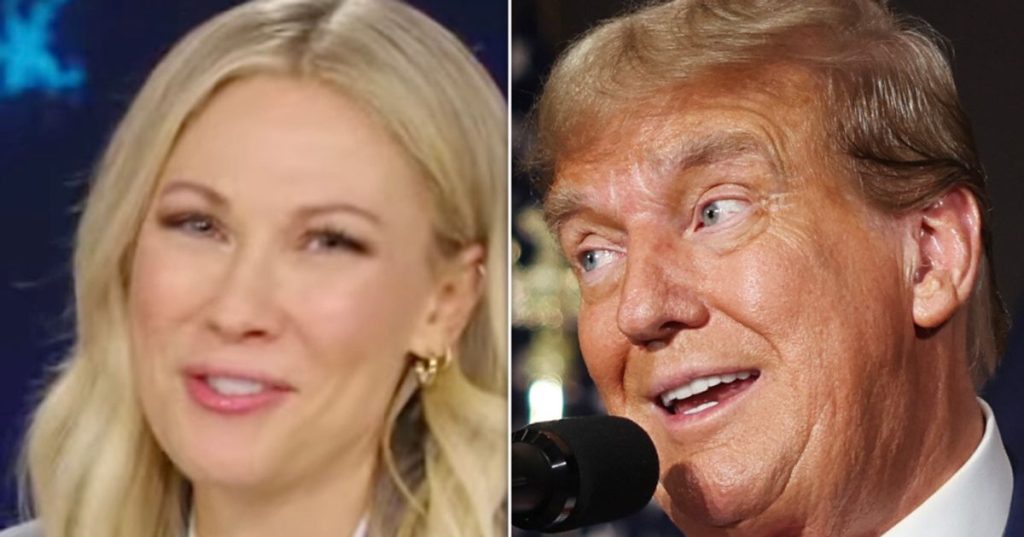Former President Donald Trump has faced financial difficulties in recent years, with his businesses suffering from the impacts of the COVID-19 pandemic and his personal wealth decreasing significantly. “The Daily Show,” known for its satirical take on current events, took the opportunity to mock the ex-president for his financial woes. In a segment on the show, a correspondent delivered scathing commentary on Trump’s situation, highlighting the irony of a billionaire struggling to pay legal fees and maintain his lavish lifestyle. The segment was intended to humorously critique Trump’s handling of his finances and his overall business acumen.
The mocking of Trump’s financial struggles on “The Daily Show” is part of a larger trend of comedians and late-night hosts using humor to critique political figures and their actions. Satirical comedy has long been a way for individuals to comment on societal issues and hold those in power accountable, and shows like “The Daily Show” have made a name for themselves by skewering politicians and public figures for their missteps and controversies. By poking fun at Trump’s financial woes, the show is not only entertaining its audience but also sending a message about accountability and transparency in politics.
Trump’s financial troubles have been widely publicized, with reports of his businesses facing bankruptcy, legal challenges, and dwindling profits. The former president, known for his extravagant lifestyle and high-profile real estate properties, has seen his wealth decrease significantly since leaving office. This downturn in his fortunes has been the subject of much speculation and commentary, with some critics pointing to his divisive rhetoric and controversial actions as contributing factors to his financial downfall. “The Daily Show” segment on Trump’s financial struggles is just one example of how the media has been covering this story, with many outlets highlighting the irony of a former billionaire now facing financial difficulties.
The segment on “The Daily Show” also touches on broader themes of wealth inequality and privilege, as Trump’s struggles are juxtaposed with the experiences of ordinary Americans facing economic hardship. By highlighting Trump’s financial woes in a comedic manner, the show is drawing attention to the disparities in wealth and power that exist in society. The segment serves as a reminder of the complexities of the financial system and the challenges that many individuals face in trying to navigate it. While the humor may be lighthearted, the underlying message is one of social commentary and critique.
Critics of the segment may argue that mocking Trump’s financial struggles is in poor taste or lacks empathy for someone facing difficulties. However, satire has long been a tool for social commentary and political critique, allowing individuals to examine power dynamics and question authority through humor. By poking fun at Trump’s financial woes, “The Daily Show” is not only entertaining its audience but also engaging in a larger conversation about accountability, privilege, and the responsibilities of those in positions of power. While the segment may be controversial, it is ultimately a reflection of the show’s commitment to using comedy as a means of sparking dialogue and reflection on important issues.
In conclusion, “The Daily Show” correspondent’s mocking of former President Trump’s financial struggles is just one example of how comedy can be used as a tool for social commentary and critique. By highlighting the irony of a billionaire facing financial difficulties, the show is drawing attention to broader themes of wealth inequality, privilege, and accountability. While some may criticize the segment for being in poor taste or lacking empathy, satire has long been a way for individuals to question authority and challenge power dynamics through humor. Ultimately, the segment serves as a reminder of the complexities of the financial system and the challenges many individuals face in navigating it, while also emphasizing the importance of holding those in positions of power accountable for their actions.













